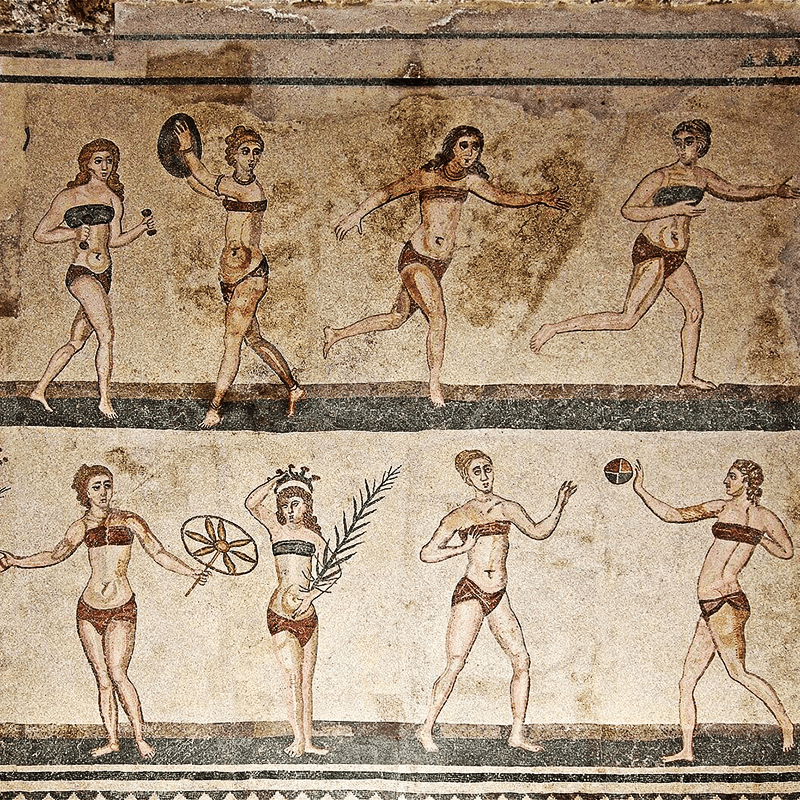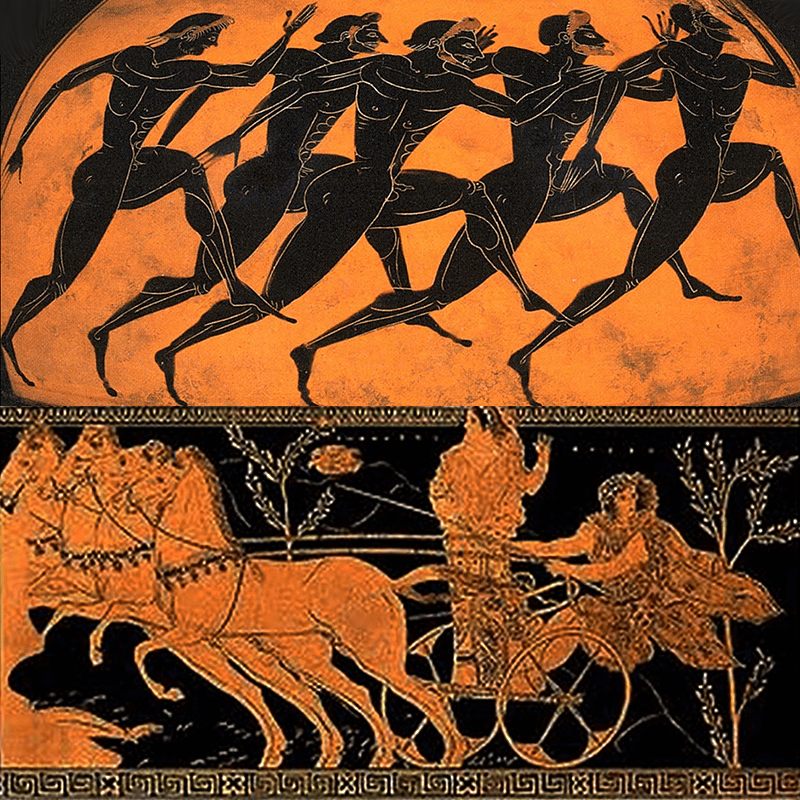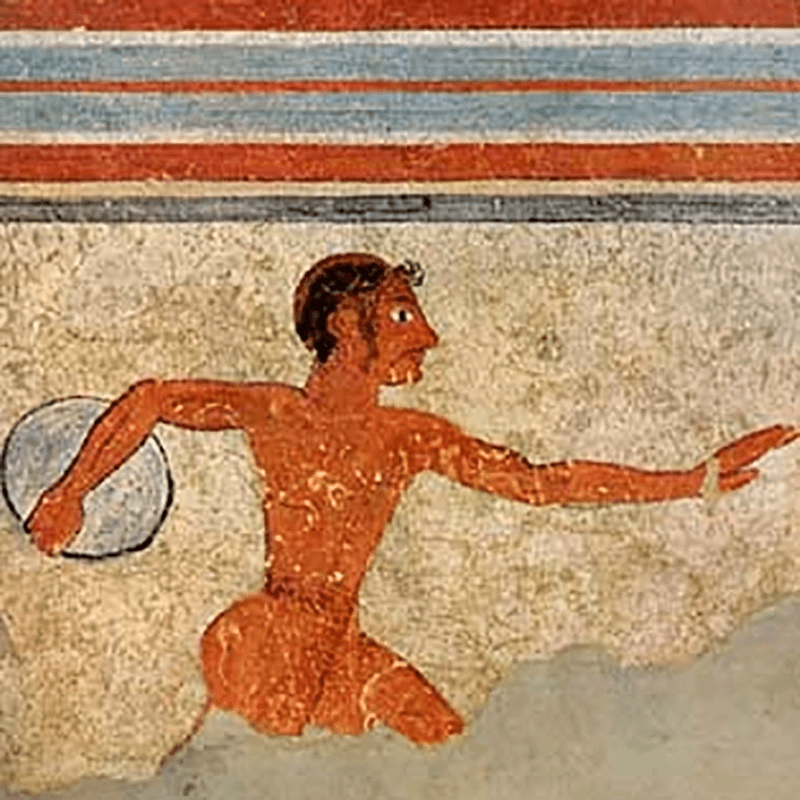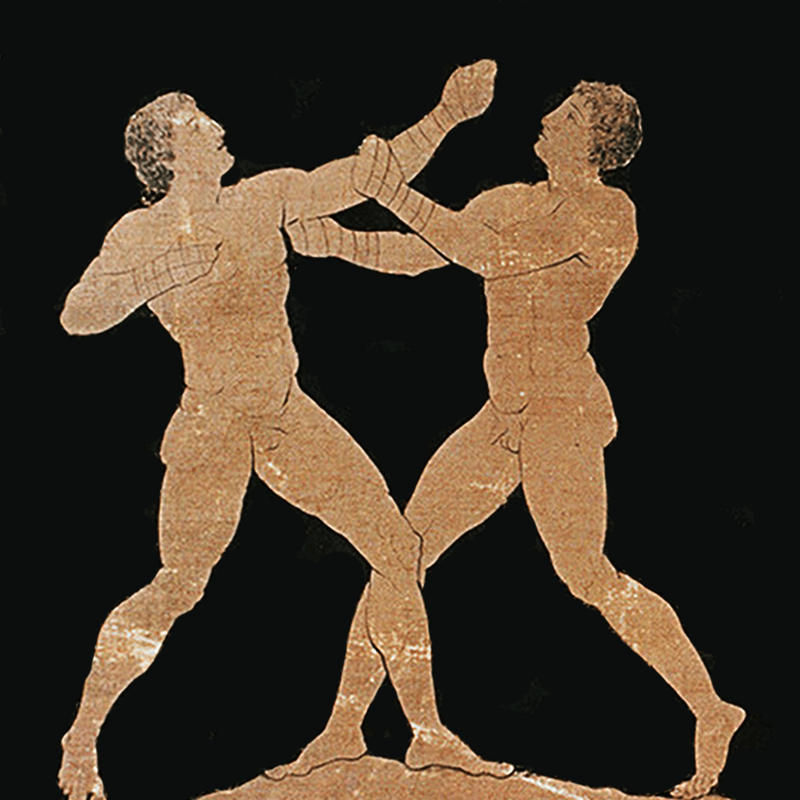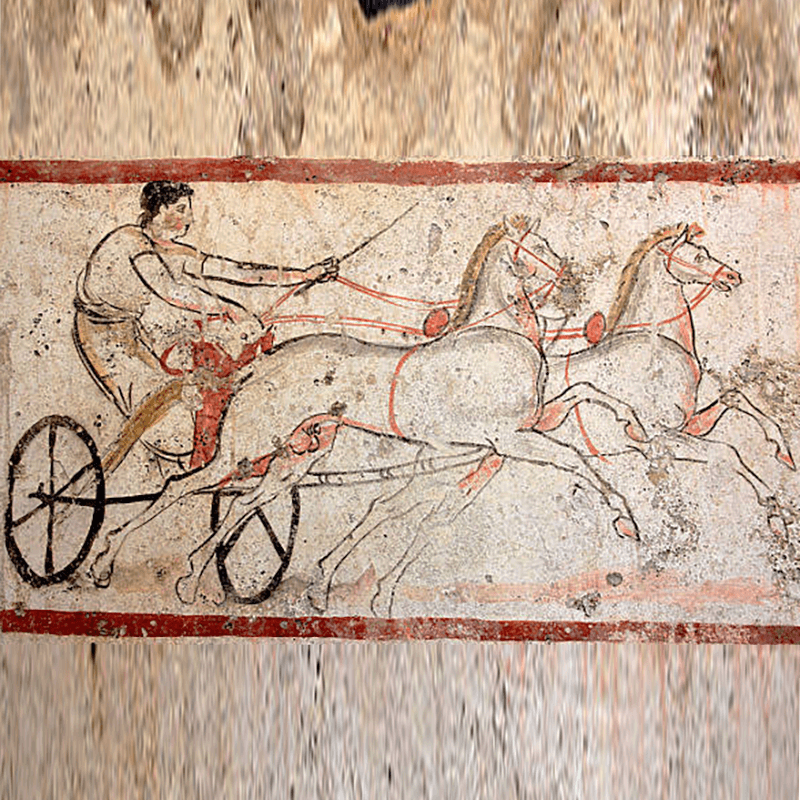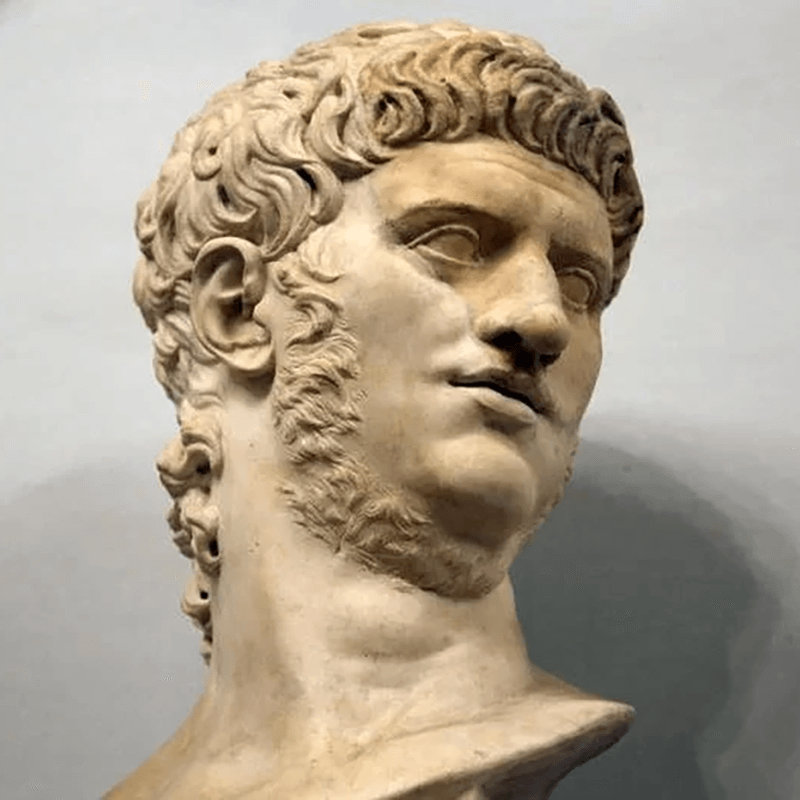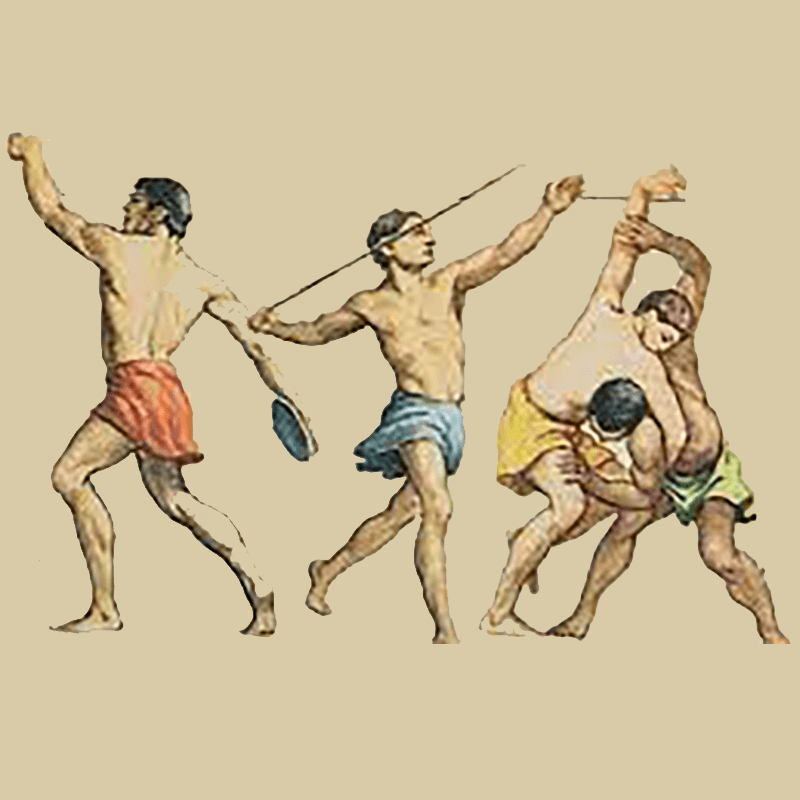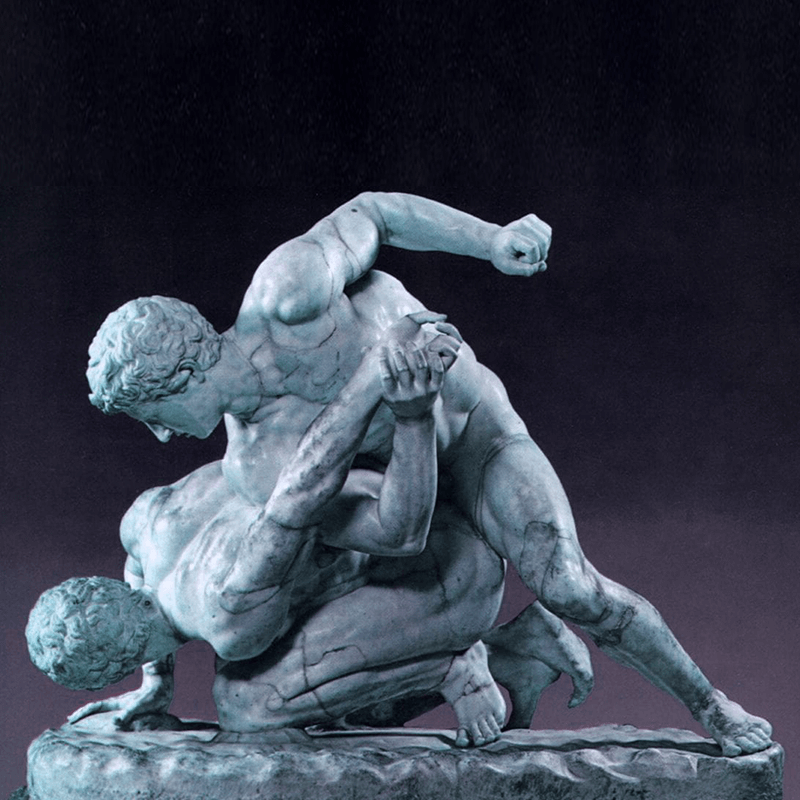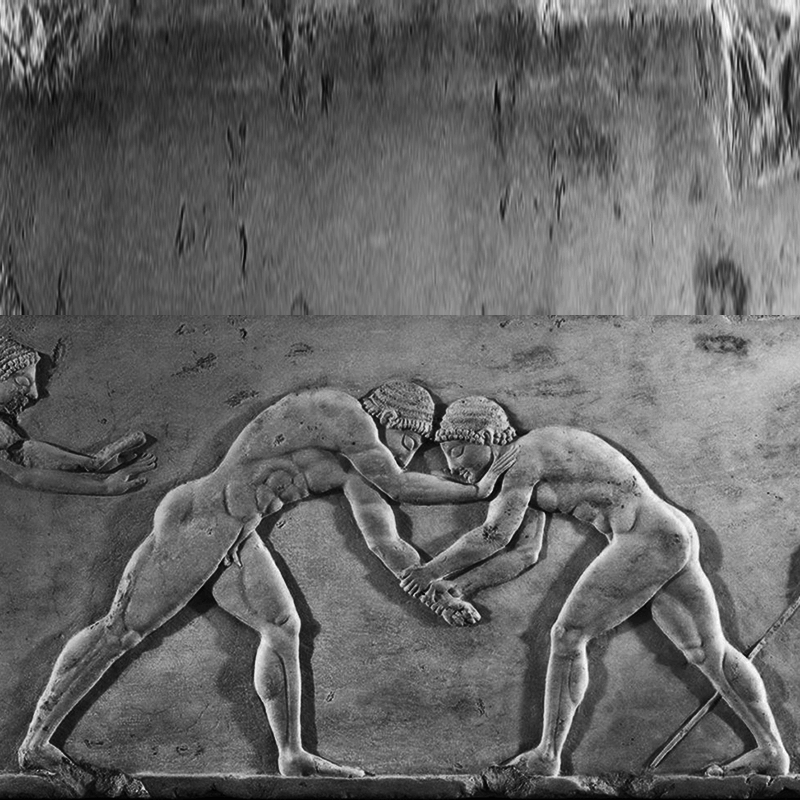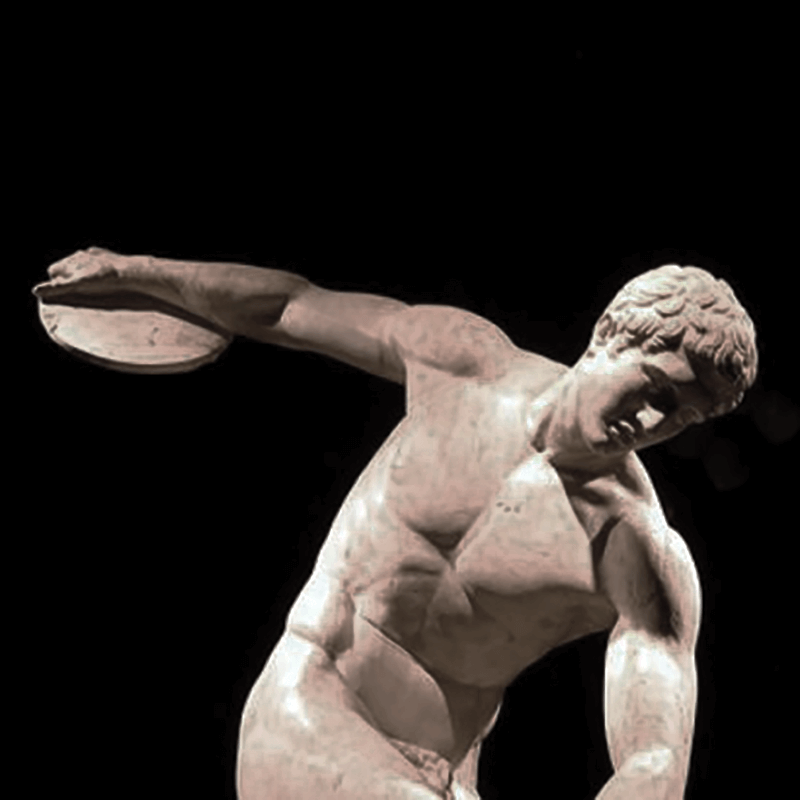In a few days the entire planet will be following the XXXIII edition of the modern Olympic Games, which will be hosted in the Paris 2024 Olympics edition. We take this opportunity to take a look back in time to discover not only the ancient Olympics , but above all how the Olympic Games were first influenced and then recovered by the society of ancient Rome. But let’s go one step at a time.
The first Olympics in history was held in 776 BC. in Olympia, Greece, and in its early days the Olympics were mainly athletic and religious celebrations that took place every four years, and which lasted until the year 393 AD. In the period of the ancient Olympic Games all sorts of wars were suspended, and the same editions of the ancient Olympic Games were used by historians as a chronological reference to date the events of the time.
Many legends revolve around the origin of the ancient Olympic Games. We know that in the first half of the second millennium BC. Within the Minoan civilization (until 1500 BC), an intense activity aimed at the cult of the body is documented, including parallel gymnastics or the famous vaulting over the bulls, but also wrestling and boxing. Homer was the first to describe in the XXIII canto of the Iliad the funeral games organized by Achilles to honor the memory of Patroclus, killed during the Trojan War.
Other origins of the games are reported to us by Pindar in the 5th century BC. According to the first theory (or legend) on the beginning of the Olympic Games, Pindar mentions the chariot race from Pisa to Corinth which took place between Oenomaus (king of Pisa) and Pelops (ruler of the entire Greek peninsula, which took the name of Peloponnese from him ) with Hippodamia‘s hand up for grabs. In the second theory Pindar mentions a sacred enclosure where Pelops‘ body lies, and where the Olympic games were established in his honour. The third legend, however, has it that Heracles, after having cleaned the Augean stables, diverted the course of the Alpheus river and, after killing the king who had refused to give him the due reward for the work done, to thank the gods, established of games whose prize was an olive branch.
From a historical point of view, however, we know that during the Mycenaean civilization (1700-1200 BC) some disciplines such as wrestling and boxing passed from Crete to the continent and became very popular. Thus during the funerary celebrations of Patroclus the aghàn (competition) is accompanied by an athlon, or a prize for the winner.
The ancient Olympic competitions opened with the horse race in the hippodrome with five chariots; boxing followed, then wrestling, followed by the athletes challenging each other in a race in the fields, a fight with weapons, archery and lastly a javelin throwing competition. The ancient men’s Olympic Games took place in the Stadium of Olympia, east of the sacred Altis enclosure dedicated to the god Zeus, while women competed in the Heraia, women’s games in honuor of the goddess Hera. Before the 6th century. a,c, these games took place in a flat area east of the great altar of Zeus. Women competed like men, but trained in gyms reserved for them where they practiced athletics with their naked bodies, like men.
The Greek Olympic Games gradually lost importance with the increase of Roman power in Greece: at first they were well-liked and also open to Romans, Phoenicians, Gauls and other subject peoples. Nero, for example, opened a huge edition of the Olympic Games in Rome, in which all the athletes of the Roman Empire could participate, including himself. Although they continued to be held in the Roman period, the Greek Olympic Games gradually lost importance. Problems related to corruption in gymnastics competitions and problems related to the safety of events also arose.
The Christianisation of the Roman Empire starting from the 4th century had a decisive influence in the definitive decline of the Greek Olympic Games and their extinction. When Christianity became the official religion of the Roman Empire, Christian bishops and writers railed against pagan celebrations and holidays, including the Olympic Games, which fomented competitive spirit, starting with Saint Augustine.
In 393 AD therefore, in response to the massacre of Thessalonica which had occurred three years earlier and under strong pressure from the bishop of Milan Ambrose (who would later be consecrated as Saint Ambrose), the emperor Theodosius I intervened decisively, definitively canceling all the pagan customs that came into conflict with Christianity. At the Olympics it was customary to compete naked or almost naked, which was not very popular with Christianity, not to mention the fact that the Olympic Games themselves were a holiday dedicated to the Greek god Zeus, so the Olympics were also cancelled.
In 426 AD, Emperor Theodosius II also ordered the destruction of all pagan temples, including sites hosting the Olympic Games. Some remains managed to survive the destruction, if only briefly. For example, the historian Cedreno narrates that the statue of Olympian Zeus in the sacred precinct of Olympia, created between 420 and 410 BC. by Phidias and considered one of the 7 Wonders of the Ancient World, it was dismantled and transported to Constantinople to be included in a private collection which however was destroyed by fire in 475 AD.
In how many editions of the ancient Greek Olympics did the Romans participate? And what athletic results did they manage to bring home? Although the Italian city with the most victories ever at the ancient Olympics was Crotone (at the time an enclave of Greek dominion in southern Italy (Magna Graecia), which boasted an Olympic medal count of 23 victories, Rome also made itself noticed at the ancient Olympics, managing to bring home 9 Olympic titles over time.
In 72 BC Gaius took first place in the dolico, an ancient discipline in which athletes competed in a race over 24 stadiums (about 4.6 km) which recalled the exploits of war messengers. In 4 BC Tiberius was triumphant in the tethrippon, the four-horse chariot race. And he was not the only emperor to participate in the Olympic Games in person, because in 67 AD. even Nero took part, achieving victory in the quadriga with colts and in the ten-horse chariot race.
Legend has it, however, that the winning charioteer was another athlete, but in the end it was Nero who was rewarded, as he was the financier of the games. Among the great Roman super-athletes at the ancient Olympic Games we cannot fail to mention Gnaeus Marcius, a valiant Roman general who defeated his opponents on two different occasions, winning a spectacular double in the gallop race (Keles, in Greek) both at the Olympic Games of 5 AD than to those of 9 AD.
If you think that the first Rome Olympics were those of 1960, you are very wrong. With the expansion of the empire into Greece, the city also began to become a place of great games. Of all the emperors, it was Nero who borrowed the use of athletic competitions and, to renew the custom in the capital but in a “new” way, he renamed the Olympics Neronia, with competitions which in addition to tests of physical resistance included singing performances and poetry. Nero’s Olympics were a failure because, given that Nero himself participated in the competitions, few people wanted to compete, much less beat the emperor.
In the year 86 AD. Domitian was the true emperor who managed to make the Greek games permanent in Rome. Domitian’s games were called Agon Capitolinus and alternated running, boxing, javelin throwing competitions in different cities, but also competitions in eloquence, Greek poetry and other competitions. To accommodate the different needs of the competitions, two different spaces were created: the Circus Agonalis for athletics and the Odeon for creative and intellectual competitions.
If you want to know more about ancient Rome, about places, facts, anecdotes and characters who have made the history of Rome, get in touch for info and tour reservations, and continue following us on Facebook, Instagram for other stories of Rome.

